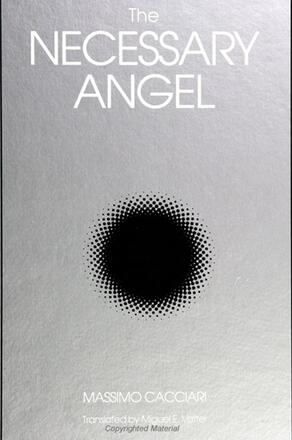
The Necessary Angel
Alternative formats available from:
Massimo Cacciari is Professor of Aesthetics at the University of Venice, Italy. He is the author of Krisis; Dallo Steinhof; Icone della Legge; Zeit ohne Kronos; and Drama y duelo.
Reviews
"Cacciari tells a story. It is the story of the history of angels in Judaic, Islamic, and Christian traditions; and it continues as an amplification of the metaphor of angels in such writers as Dante, Rilke, Kafka, Benjamin, Klee, and Marc in order to speak about the phenomenology of language. Cacciari talks about angels in order to describe the contradictory nature of linguistic signs (absolute freedom and absolute determination). The greatest importance of this book is its 'poetic' approach to phenomenology and the genre of philosophical writing." -- Beverly Allen
"Massimo Cacciari's book The Necessary Angel is both an extremely erudite elucidation of angelology that discusses philosophy, religion, literature, music and painting; and a philosophical focus on the figure of the Angel as 'suspended between all the axes of creation.'" — Alexander Garcia Düttmann
"Cacciari's unpredictable approaches to the literary, philosophical, and artistic tradition that frames our present intellectual situation, particularly the one that takes shape in the Germanic world of the early twentieth century, are always penetrating and at times even dazzling. This book is an astounding tour de force, eclectic to be sure, but compelling in its defining the contours of that 'angelic' apriori, which is both beyond the human yet intimately inherent in the human—an apriori which discloses the world in its indeterminate, finite transcendence and which makes of the human a locus of intermediary meaning whose ultimate terms are ungraspable, unsayable, and enigmatic. It offers a new figure, an original vocabulary, a fresh network of references, for the intellectual issues that concern so many of us: nihilism, post-modernism, the conditions of intelligibility, and the status of language." — Robert Harrison